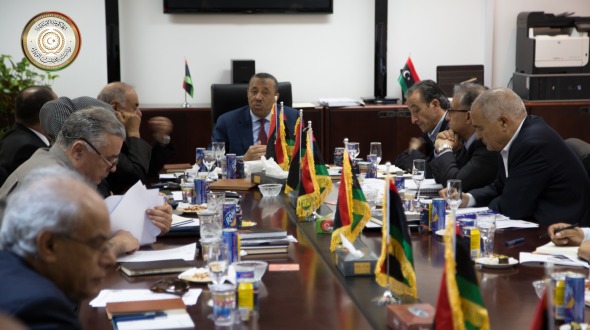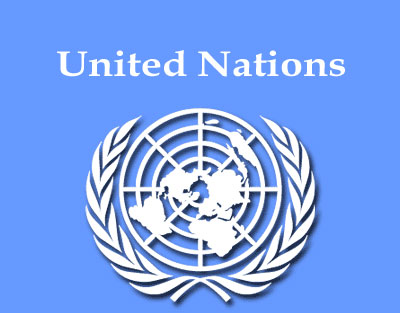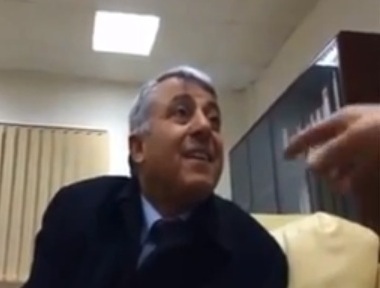Tweets......
http://www.aljazeera.com/news/middleeast/2014/08/libya-government-resigns-allow-new-cabinet-201482913451213208.html
Libya Herald.....

Conclusions from yesterday's meeting of EU Heads of State & Government inc Paras 22-25 on #Libya: http://ln.is/consilium.europa.eu/aMMVM …
Now @skynewsarabia reporting #Libya-n Air Force conducting Airstrikes on various targets in Eastern #Libya's cities of #Benghazi & #Derna.
Islamists spoils in #Libya during the battles against Hiftar forces pic.twitter.com/c5UPMkgS5D
http://www.aljazeera.com/news/middleeast/2014/08/libya-government-resigns-allow-new-cabinet-201482913451213208.html
Libya government resigns to allow new cabinet |
Government of Abdullah al-Thinni steps down amid fighting between rival militias in the capital, Tripoli.
Last updated: 29 Aug 2014 02:28
|

The House of Representatives and the government have moved to Tobruk to escape fighting in Tripoli [Reuters]
|
Libya's prime minister and his cabinet have resigned to make way for a new government based on parliamentary elections held in June, a government statement said. Abdullah al-Thinni's cabinet said on Thursday that it had resigned according to Libya's constitutional rules to allow the new House of Representatives to form a government based on all parts of society. The House of Representatives replaced the General National Congress in June, but was forced to move to Tobruk in the far east of the country to escape a month of street fighting in the capital, Tripoli. Armed factions mainly from the northwestern city of Misrata expelled from the capital a rival group from Zintan, and have pushed to reinstate the previous parliament, the GNC. Islamists were much stronger in the GNC than in the new assembly dominated by liberal and federalist politicians. Thinni was appointed in March, but has faced opposition and a government teeterting on collapse for much of his tenure. The Islamist-leaning Ahmed Maetig was appointed prime minister following a breakdown of parliament in May but his position was later ruled unconstitutional and Thinni was reinstated as caretaker in June. "This is just a routine step. There is no conflict between Thinni and the House of Representatives," an unnamed politician told the Reuters news agency. |
Libya Herald.....
GNC rump starts Libya Dawn warplane attack enquiry
By Libya Herald reporters
Omar Hmeidan, GNC spokesman, announces the re-organization of HNEC (Photo: GNC Spokesman’s Office)
GNC spokesman Omar Hmeidan last year (file photo)
Tripoli, 29 August 2014:
GNC spokesman Omar Hmeidan last year (file photo)
Tripoli, 29 August 2014:
The rump of the General National Congress, which resurrected itself on Monday in opposition to the newly-elected House of Representatives, is setting up a committee to investigate whose warplanes attacked Libya Dawn positions last week in the final stages of the 43-day battle for Tripoli . . .
Denials and confusion over ministerial resignations
By Farah Waleed.
Tripoli, 28 August 2014:
The reported resignation of six cabinet ministers has been met with a strong denial from the government.
The government has said the reports are absolutely untrue and if such a wave of resignations were to take place it would have informed the public. Government spokesman and Cabinet Secretary Ahmed Al-Amin accused those media outlets which had published the story of bias.
It seems the claims were first aired on the Islamist-backed Al-Nabaa TV before they were picked up by the Libyan news agency LANA.
LANA reported yesterday that the ministers of industry, labour, planning, education, water resources and the war-wounded had resigned over government bias during the current conflict. The Minister of Industry Suleiman Al-Fituri was quoted as saying that the six had tried to persevere in government but that it was failing to address issues, was biased and that the prime minister had taken action without their knowledge.
Minister of Education Ali Obaid, however, told the Libya Herald that there was no truth to the story and denied the claims. He was still in office, he said. The Minister of Water Resources Al-Hadi Hinshir refused to talk about the claims over the phone.
The cabinet met in Tobruk yesterday.
Egypt prepared to take lead in ensuring stability in Libya
By Libya Herald staff.
Cairo, 28 August 2014:
Egypt has said that is prepared to lead an international coalition under the umbrella of the Arab League to stabilise Libya, adding that it would also carry out military strikes if requested by the Libyan House of Representatives.
The Egyptian government says it will present the proposasl to the UN Security Council on 25 September.
Just last night, the UN voted unanimously to take action against those who threaten Libya’s stability and democratic process. The resolution broadened the parameters of existing UN sanctions on the country to include both travel bans and financial penalties for those groups and individuals that supported acts that “threaten the peace, stability or security of Libya”.
Egypt has welcomed the resolution, particularly the Security Council’s ban on arms shipped to militias and its decision to instruct Libya’s neighbouring countries — including Egypt — to inspect all cargoes to and from Libya to ensure they do not contain arms and munitions or any other illicit items.
In June, Egyptian authorities discovered a shipment headed toward militants on their side of the border containing more than 1,000 weapons, including grenades and machine guns. Officials believe that these militias have similar ambitions to those of ISIS in Iraq and that they want to overthrow Sisi and establish a Islamic state in Egypt.
Egypt, which has struggled to find stability since its own revolution, has a lot to lose should Libyan violence bleed over its border and weapons continue to flow freely.
UN Security Council authorises sanctions against anyone endangering Libya’s stability and democracy
By Libya Herald staff.
Tripoli, 27 August 2014:
By unanimous vote today the UN Security Council decided to take action again those who threaten Libya’s stability and democratic progress.
The resolution, which came following a report by the UN Support Mission in Libya’s outgoing head, Tarek Mitri, broadened the parameters of existing UN sanctions on the country to include groups or individuals that supported acts that “threaten the peace, stability or security of Libya, or obstruct or undermine the successful completion of its political transition”.
The Security Council said these acts included attacks by land, air and sea against Libya as well as engaging with groups looking to exploit the natural resources of the country with a particular emphasis on its oil.
The sanctions include both travel bans and financial penalties.
No individuals were named. That will be left to the Security Council’s Libya Sanctions Committee to deal with. However, given that the UN and other international organisations have said that the House of Representatives is Libya’s only legislature, it would be surprising if former Congress leader Nuri Abu Sahmain did not appear near the top of the list of those to be hit, along with those members of the former Congress members who have tried to set up a parallel government.
Others expected to be sanctioned include militia leaders in Tripoli, Benghazi, Sirte and elsewhere.
As a result of their operations, several are said to have amassed large amounts of money which have then been invested abroad – Morocco, Malta and the UK being reported as favoured destinations.
The Grand Mufti, Sheikh Sadik Al-Ghariani, currently living in London, also risks appearing on the sanctions list.
In today’s resolution, the UN called on the international community and neighbouring countries in particular to to inspect cargoes to and from Libya to ensure they did not contain illicit items, such as arms and munitions, which are embargoed.
Any shipments of arms according to the resolution must be approved by the Security Council.
The resolution further demanded an immediate ceasefire, adding that it condemned the increasing violence particularly in Tripoli and Benghazi. It backed previous calls by several bodies for a ceasefire including the House of Representatives, reaffirming its support for the legislature which was elected in June.
The Security Council said the House of Representatives and the Constitutional Drafting Committee should “carry out their tasks in a spirit of inclusiveness, and calls on all parties to engage in an inclusive Libyan-led political dialogue in order to help restore stability”.
In the lead-up to the new resolution, Tarek Mitri reported to the UN Security Council that “armed battles, which were both the cause and result of deep divisions among Libyan political factions, were continuing almost uninterrupted in Tripoli, Benghazi and other parts of the country”. He said this violence had resulted in “a further deterioration of living conditions, displaced populations and a rising death toll, including children”.
Mitri added that he “urged the United Nations to “spare no effort” to bring the various actors to the dialogue table”.
Ibrahim Omar Dabbashi, Libya’s Permanent Representative, said the situation in his country was becoming “more complicated” and could “unravel into a full-blown civil war”.
GNC is dead, Mufti is divisive: Faraj Buhashim, newly appointed HoR spokesperson
By Sami Zaptia.
Tripoli, 27 August 2014:
Tripoli, 27 August 2014:
Speaking in his first extended interview on Libya Awalan's "An Hour on Air" programme, Faraj Buhashim (Hashim), the newly appointed House of Representatives' (HoR) spokesperson, condemned the fighting by militias, condemned the GNC's attempted resurrection and Grand Mufti's "divisiveness" as well as the Representatives still boycotting the HoR proceedings in Tobruk.
On the actions of the warring militias and their efforts to impose their will on the Libyan people as well as on its legitimately elected body, the HoR, Buhashim asked . . .
Libyan and Egyptian chiefs of staff discuss military cooperation
By Libya Herald staff.

Libyan and Egyptian Chiefs of Staff Major-General Abdul Razzaq Al-Nazhuri and Lieutenant General Mahmoud Hegazy discuss military cooperation (Photo: Egyptian Armed Forces)
Cairo, 27 August 2014:
Libyan Chief of Staff Major-General Abdul Razzaq Al-Nazhuri met with Egyptian Chief of Staff Lieutenant General Mahmoud Hegazy on Wednesday to discuss cooperation between the two countries’ militaries in order to achieve stability in Libya. The meeting was one in a series of meetings that took place in Cairo this week between ministers from Libya and its neighboring countries.
On Tuesday, Libyan Foreign Minister Mohamed Abdulaziz and the President of Libyan House of Representatives (HoR) Ageela Saleh along with Nazhuri met with Egyptian Foreign Minister Sameh Shoukry and Egyptian President Abdel-Fateh Al-Sisi, During the meeting Sisi offered to train Libyan police and army units inside Egypt and promised to treat wounded Libyan soldiers in Egyptian military hospitals at Egypt’s expense.
Sisi had already indicated he planned to submit plans on Libya to the UN Security Council today in order to bring about stability in the country. They flow from meeting between Libya’s Abdelaziz and ministers from neighbouring countries hosted by Shoukri.
One of the major points of the proposals is that all militias and armed groups permanently disarm and that the army, police and legitimate democratic institutions in Libya, including the HoR, be supported. They also call for the close monitoring of arms moving in and out of the country with shipments to be authorised only by the government and the UN Secuirty Council’s Sanctions Committee.
Acording to Nazhuri, those who are willing to hand over their weapons will be invited to participate in national dialogue.
“We will talk with those who wish to hand over weapons, while terrorist groups that insist on the use of violence will be crushed, and we are capable of doing so,” he stated.
Egypt reiterates Tripoli airstrike denial as US backtracks
By Libya Herald staff.
Tripoli, 27 August 2014:
The Egyptian Foreign Minister has restated his country’s policy of non-interference following last week’s foreign airstrikes on Tripoli.
The comments were made during an Egyptian cabinet meeting as Foreign Minister Sameh Shukri reported back on Monday’s and Tuesday’s talks in Cairo between Libya’s neighbours. The announcement was a swipe at claims published in the New York Times yesterday that Egypt had collaborated with the UAE to launch bombing raids on Tripoli.
The US State Department has meanwhile distanced itself from the statements made by American officials who had said they were surprised to learn of the airstrikes. Speaking at a press briefing yesterday State Department spokesperson Jennifer Psaki said it was “understood” that Egypt and the UAE had launched the strikes but that questions abut it should be referred to the two countries.
The General National Congress (GNC), which attempted to reinstate itself as Libya’s legislature two days ago, has attributed the airstrikes to Egypt and the UAE, condemning them as a “flagrant violation of national sovereignty”. It said they contravened UN and Arab League conventions and called on its Arab neighbours to respond to the aggression.
Following the strikes, Libya Dawn immediately accused the UAE and Egypt of involvement. It was the first time the Emirates had been implicated in such attacks. Senior Libyan officials previously stated they believed either Algeria or Egypt to be involved.
Egypt, Chad, Tunisia, Algeria and Sudan have met in Cairo to discuss ways in which they can help put an end to violence in Libya. They fear the current instability could spill over into the wider region. Delegates have already commented that any further escalation could prompt a foreign intervention.
The House of Representatives, based in Tobruk, earlier this month requested a foreign intervention. The request was rejected by the Arab League and by many bodies in Libya.
Similarly France, Germany, Italy, the UK and the US have said that they believe that outside interference in Libya would only exacerbate the current divisions within the country and undermine Libya’s democratic transition.
US “surprised” at UAE and Egyptian Tripoli airstrikes
By Libya Herald staff.
Tripoli, 26 August 2014:
Senior American officials have said they were surprised to learn that the Emirates and Egypt attacked positions held by Misratan-led militias over the past week. They said the US had been given no prior warning,
The New York Times reported that Washington had felt left on the sidelines by the move. One official was quoted as saying: “We don’t see this as constructive at all.”
It is alleged that the UAE, which possesses one of the most formidable air forces within the region, provided the necessary aircraft and pilots with Egypt offering their bases for the bombings.
The Emirates have not commented on the two attacks, both of which took place over the past week. Egypt has flatly denied any involvement. Yesterday, Egyptian officials accused the Americans of lying and of trying to drag Egypt into the Libyan crisis.
Following the airstrikes, Libya Dawn immediately accused the UAE and Egypt of involvement. It was the first time the Emirates had been implicated in such attacks. Senior Libyan Officials previously stated they believed either Algeria or Egypt to be involved.
Egypt, Chad, Tunisia, Algeria and Sudan have met in Cairo to discuss ways in which the country’s neighbours can put an end to violence in Libya. They fear the current instability could spill over into the wider region. Delegates have already commented that any further escalation could prompt a foreign intervention.
The House of Representatives, based in Tobruk, earlier this month requested a foreign intervention. The request was rejected by the Arab League and by many bodies in Libya.
Similarly France, Germany, Italy, the UK and the US have said that they believe that outside interference in Libya would only exacerbate the current divisions within the country and undermine Libya’s democratic transition.
The claim that Egypt and the Emirates were behind the recent attacks has prompted some to say Libya would become a full-scale proxy war-ground for outside powers, as was Lebanon, in this case between Qatar on the one hand and Egypt and the Emirates on the other. All have backed militias within Libya.
However, the airstrikes appear to have had little effect on the fighting on the ground. The Misratan-led, Islamist-leaning militias against whom the bombing campaigns were directed, were still able to take control of Tripoli Airport, despite the short-lived interventions.
 Michael Aron
Michael Aron  Mohamed Eljarh
Mohamed Eljarh 










No comments:
Post a Comment